Interview With Alyson Shelton
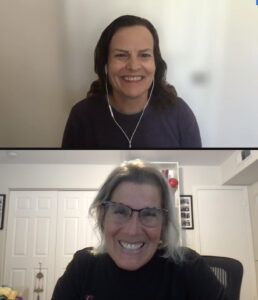
I first connected with Alyson Shelton around her Instagram poetry project “Where I’m From.” Participating in the project was an incredibly powerful experience for me, so I invited her to do an interview with me about it. When I started to learn more about Alyson, I quickly discovered how many wonderful projects she’s involved in, including a few around sibling loss. I’ve also been introduced to her writing—and to her podcasts and films! And now it’s my great pleasure to share our conversation with you!
Diane: Welcome, Alyson. I’m so excited to speak to you today.
Alyson: Thank you, Diane, for asking me.
Diane: I was introduced to you because of your wonderful project, “Where I’m From.” Can you just tell us about it?
Alyson: It’s a weekly Instagram Live series, inspired by George Ella Lyon’s poem, “Where I’m From.” A man named Fred First created the prompts, which many people describe as similar to Mad Libs. I was introduced to them in a writing workshop with Jeannine Ouellette. We did the exercise, and I was just really moved by it and thought “what if I asked people to join me on Instagram with their answers?”
There are questions like fill in a smell from your childhood or an experience from your childhood, or a person or a family story, your religion. You could just fill in the blanks, literally, and you would have a poem. Many of the people who join me don’t follow the rules, which I fully encourage, and so they come up with something that is inspired by the prompt but isn’t following it super closely.
“Talking About Where We’re from Interests a Lot of People”
I’ve always been really interested in people’s stories, and I am particularly interested in childhoods. Mine certainly was formative. I think the most difficult things that happened in my life happened before I was five.
I just reached out to people I knew and said, “Hey, would you like to join me?” They did! And people started reaching out to me and asking if they could do it too. Talking about where we’re from interests a lot of people. I think a lot of people who’ve joined me also feel a rekindling of their love for poetry.
It is truly a joy for me, every week, to listen to someone talk about where they’re from.
Diane: I can tell it’s a joy for you. It was also such a joy for me when I participated. I found that the prompts activated memories. If you had just asked me about my childhood, some things would have popped up, but so much more is not immediately accessible. But when you’re asked to remember a smell or a brand of something that was in your house, it really opens up some stuff that’s been in the back of the closet or under the bed collecting dust bunnies. It’s an amazing process.
(I’ve included, below, episode #136 of Alyson’s IG Live, my guest spot, where I read my own “Where I’m From” poem and speak with Alyson about the process of writing and sharing it.)
I read your Brevity blog interview. I love how you said we don’t have a lot of time to connect with people and that when we first talk to people, we’re not going to ask them personal questions—or ask them about smells. If you do get kind of personal with somebody, it can put them on the spot. But these prompts give people the choice to share what they want to share. I’m sure you feel it’s a gift when people share with you, but it’s also such a gift to the people who are doing it.
“The Reciprocity Is Part of the Reason It’s So Joyful for Me”
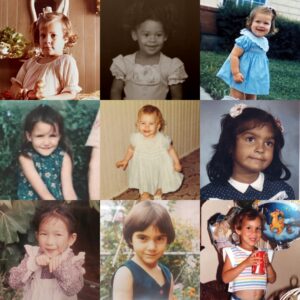 I want to say thank you. It was such a moving experience for me.
I want to say thank you. It was such a moving experience for me.
Alyson: I mean, that’s the goal, right?
I think the reciprocity is part of the reason it’s so joyful for me. I don’t feel like I’m asking people to do me a favor. It’s just like, “Oh, let’s do this thing together.” I love creative collaboration. This project enables me to do that with people I’ve never met before.
Diane: I had the opportunity after meeting you to read some of your writing, and it’s incredibly powerful. Let’s talk about “There Is No Escape,” the essay you wrote for The Rumpus’s “Voices on Addiction” section. You grew up in a difficult household.
Alyson:I did.
“I Had a Reason I Could Point to Because Much of What Was Happening Around Me, I Couldn’t Name or Understand”
Diane: And you write about it and about your brother Michael’s death. You were 10, and he was 26 when he died in a hiking accident. He had been kind of a hope for you.
Alyson: He was.
Diane: You just knew he was going to succeed. That was his goal and his path. In the essay you said that both you and he wanted to escape. You watched him escape through success, and then he died.
Alyson: Yeah.
Diane: Anybody’s death in a family, would be so hard at that age. But, because of what the hope his example gave you, was the loss even more difficult?
(Please listen to Alyson read her incredibly powerful essay “There Is No Escape” that was featured in The Rumpus.)
Alyson: That’s interesting because on the one hand, I felt like I had an opportunity to be sad. I had a reason I could point to because much of what was happening around me, I couldn’t name or understand. Death is very clear. This person is no longer with us. But there was only so much space for my grief. And I’ve connected with other siblings now, and that’s a very common theme for people who have lived through sibling loss.
There’s just not that much space for their grief because, obviously, the parents feel enormous grief. And also, I was definitely a descendant of people who, if somebody died, they were gone. There was not much conversation about that person. My family position was that I was the person who wouldn’t shut up about things. Once I started talking about the abuse, the addiction, all these things, I was like a dog with a bone. That was the I had.
“There Are More Books on Pet Loss Than on Sibling Loss”
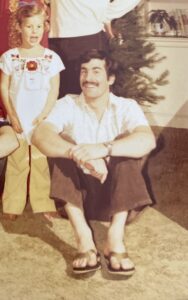 Talking about Michael’s death and the associated grief went in that container. “Oh, here’s another thing Alyson won’t stop talking about.” And I think also it was complicated by the fact that Michael was my half-brother, as are all my brothers. Even though I grew up with them, and I never used that word—and never thought about that word until he died—it was used to minimize what I was feeling.
Talking about Michael’s death and the associated grief went in that container. “Oh, here’s another thing Alyson won’t stop talking about.” And I think also it was complicated by the fact that Michael was my half-brother, as are all my brothers. Even though I grew up with them, and I never used that word—and never thought about that word until he died—it was used to minimize what I was feeling.
I’ve had people say to me in adulthood, “Well, it must not have been that bad for you. He was your half-brother.” People are just really uncomfortable with grief.
Diane: They certainly are. And sibling death. There’s not all that much out there on that.
Alyson: No.
Siblings are the forgotten mourners. Lynn Shattuck writes on sibling loss and speaks so much about things I felt and experienced. When I found her writing during the pandemic, I finally felt seen. As writers, we hope to provide a mirror to people, and she did that for me.
We connected and became friends. She had been working on an anthology about sibling loss, so we came together to work on it. We are struck by how few resources there are when you look up sibling loss on the Internet.
It feels like another erasure.
More than one person has mentioned that there are more books on pet loss than on sibling loss.
“We Have This Shared Language in These Experiences”
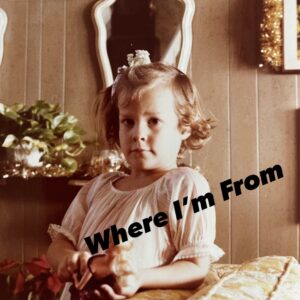 Diane: The working title is The Loss of a Lifetime: Advice from Grieving Siblings On Loss, Love and Hope. Are they advice essays?
Diane: The working title is The Loss of a Lifetime: Advice from Grieving Siblings On Loss, Love and Hope. Are they advice essays?
Alyson: I think it’s all advice because the book is about how we live with sibling loss. It meets people where they’re at. It’s what we wanted to read.
Diane: You’re also co-founding a sibling loss community?
Alyson: It’s very validating, talking to others who’ve had sibling loss because you no longer feel alone. We have this shared language in these experiences. Molly Fowkes, whose brother Jimmy died when she was 17, Lynn, and I were talking., and we said “Oh, this could be more than an anthology. What if we did a website?” So Molly created this website. It’s got resources. And we started a sibling loss book club and had our first meeting on Monday, May 13th with Anne Pinkerton’s Were You Close. We have plans for another four or five books already. The authors will join us. We have a spot on the website where people can submit a picture and their person’s name and whatever other details they want to share, so we can feel connected. That’s the hope, to feel less alone.
Diane: It’s wonderful.
Alyson: Thank you.
Diane: Are you comfortable talking about some of your other writing?
Alyson: Sure.
“In That Essay, I Talk About EMDR Therapy and Healing This Trauma I Was Carrying in My Body From Early Pre-Verbal Childhood”
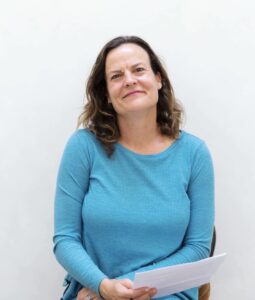 Diane: “Stop Is a Complete Sentence.” Can you tell us about that?
Diane: “Stop Is a Complete Sentence.” Can you tell us about that?
Alyson: It’s really hard to write about sexual violence because you don’t want to trauma dump. So we don’t need to get too much into the details of what happened. But I was just thinking about how “stop” is a complete sentence but how it never seemed to work for me. In that essay, I also talk about EMDR therapy and healing this trauma I was carrying in my body from early pre-verbal childhood.
I knew it happened because repressed memories came back. But then I would go through periods of being like, “That couldn’t have happened. No one would ever do that. That’s terrible.” And people told me no one would ever do that, and why would you make up such a terrible lie?
In the essay, I talk about my neck freezing, which is something that has happened to me throughout my life. I never really put that together with the sexual violence. In my memoir in progress, I use the analogy of an old-timey breaker box where everything’s connected, and you don’t know what switch goes where because it’s all been Jerry-rigged to continue to function. I feel like that was me. I had these things going on, but I didn’t know why.
“I Had a Friend Whom I Reconnected with on Social Media, Who Said to Me, “You Seem Like You Have a Lot of Unresolved Trauma.”
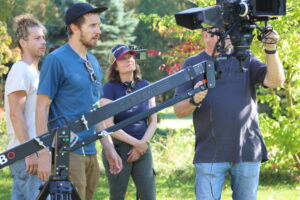 When my neck completely froze, I went to the chiropractor, but it was so clear that it was something else. And I had a friend whom I reconnected with on social media, who said to me, “You seem like you have a lot of unresolved trauma.” Out of nowhere. We were talking about bagels or something. And she just said that. And I was like, “But I am so happy. What do you mean? I’m happily married. I have these kids. I’ve got a great life. What trauma?” She’s like, “I don’t know. I just feel it.” She gave me her therapist’s card, and I called.
When my neck completely froze, I went to the chiropractor, but it was so clear that it was something else. And I had a friend whom I reconnected with on social media, who said to me, “You seem like you have a lot of unresolved trauma.” Out of nowhere. We were talking about bagels or something. And she just said that. And I was like, “But I am so happy. What do you mean? I’m happily married. I have these kids. I’ve got a great life. What trauma?” She’s like, “I don’t know. I just feel it.” She gave me her therapist’s card, and I called.
There was something about having the therapist believe me that changed me. I also think EMDR makes a literal difference in your brain. Now I’m doing parts therapy, which is another way of reconnecting with your younger selves. The book is No Bad Parts. There are exercises in there, which I wouldn’t do without a trained therapist personally.
It’s also an incredibly powerful tool for memoir writers because I have these actual parts of myself that I communicate with.
Diane: So you went to USC. And you have your stories about it.
Alyson: I do.
Diane: You were a film and production major there, which we’re going to talk about, but here’s a link to “The Repercussions of Trauma as a Former Patient of Dr. George Tyndall,” another essay you wrote for Ms Magazine about your horrible experience at the USC health center under the “care” of Dr. Tyndall. I don’t even know what to say.
Alyson: Yeah, they paid out $1 billion in lawsuits.
Diane: $1 billion?
Alyson: $1 billion.
“I Wrote and Directed a Feature Film called Eve of Understanding”
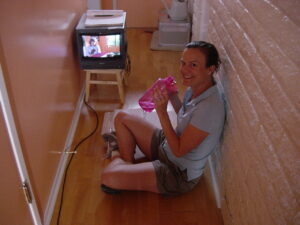 They knew the abuse was happening for decades. That’s the part that’s always the most infuriating, is that they just kept burying it.
They knew the abuse was happening for decades. That’s the part that’s always the most infuriating, is that they just kept burying it.
The number of people Dr. Tyndall saw as the head of the student health center at such a large university is huge. So many women coming in for pap smears and birth control prescriptions. The only reason I ever went to the student health center was to get a prescription for oral birth control. And I was assaulted by him as were many of my peers.
Diane: A billion dollars worth.
Alyson: Yes. Thousands of us.
Diane: Unreal. I hope people will read your essay to learn more about this.
Tell us about your film.
Alyson: I wrote and directed a feature film called Eve of Understanding not that long after I graduated film school. Jen Prince, a friend of mine who was in the program with me was the producer. We got into lots of festivals and got lots of wonderful feedback. And then it was difficult to convert that success into another project. There’s lots of data about how difficult it is as a female director to get your second feature. I lived that. And then I had kids, and I was so burned out from my life in the business that I was happy to just stop. And that’s exactly what I did.
“Jen Applied to Sundance Producers Lab, and We Got to the Second Round”
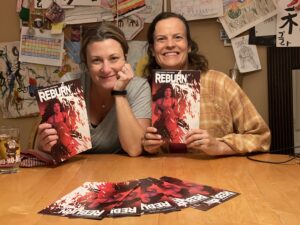 Diane: Any interest in going back?
Diane: Any interest in going back?
Alyson: Well, it’s interesting. When my second child went to school, I was like, “Oh, well, I kind of have to do something now.” I actually thought about going and becoming a therapist. And then Jen and my friend Jess Petelle were like, “You should write.” And I was like, “No one cares about my writing.” Nobody. All the things we tell ourselves. You give yourself the opposite of a pep talk. Whatever the opposite of a pep talk is, you give yourself that.
I made a ridiculous bargain with myself. I was like, “Well, if I went to school to become a therapist, it would take seven years and cost lots of money, so what if I give myself seven years to do this and see if it goes anywhere and I don’t spend any money?” That’s how I started writing screenplays again.
And then Jess was like, “Let’s turn this into a comic book.” So we turned it into a comic book, Reburn, that we did a Kickstarter for, and we raised tens of thousands of dollars, and we did four issues of that. Then Jen applied to Sundance Producers Lab with another one, and we got to the second round, which felt good because we’ve applied to Sundance so many times before and got nothing.
“We’re Getting Ready to Go to Festivals”
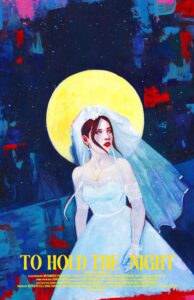 We just kept talking, the three of us, Jen, Jess and I. Jess was the director, Jen was the producer, and I was the writer producer. I wrote To Hold the Night and we made that in October in Canada. So now we’re getting ready to go do festivals.
We just kept talking, the three of us, Jen, Jess and I. Jess was the director, Jen was the producer, and I was the writer producer. I wrote To Hold the Night and we made that in October in Canada. So now we’re getting ready to go do festivals.
Diane: That’s wonderful.
Can you tell us about your podcast?
Alyson: So again, collaboration.
Diane: I love it.
Alyson: I did some podcasts with a woman named Ria Carrogan. And then Ria was like, “I want to start a podcast collective with this group of women.” So it is actually Tonya Todd, which is amazing, Ria, myself, Jess Davies and Ada McCartney. And we each have something we focus on. And it’s lovely because we have over a hundred episodes. I did around 25. It’s wonderful that we’re doing this together. And it’s an excuse to sit down with people you find fascinating.
“I Talk to People for Like 15 to 20 Minutes about a Scene that Struck Them”
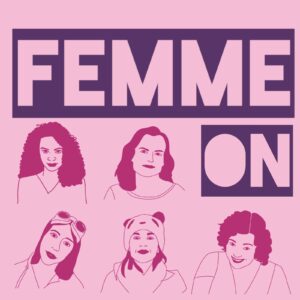 Diane: What kind of content do you have?
Diane: What kind of content do you have?
Alyson: Well, I do Fine Cut, which is where I talk to people for like 15 to 20 minutes about a scene that struck them and that they want to dig into a bit. Just yesterday, one came out talking about One Day, that TV show on Netflix with Ambika Mod and Leo Woodall. And there’s a scene in it where they play this game, “Are You There, Moriarty?” It’s a terrible game that these incredibly posh British people play, where fun and cruelty intersect in a family. I grew up with a lot of “we’re just having fun together,” and it was horrific. The scene just spoke to me in such a powerful way. So I reached out to Ria and my friend Kim Rowe, and we talked about it. People can also come to me with scenes they want to talk about.
“I Find Her Generosity with Her oem and Her Wisdom Inspiring”
Then I also do interviews, where I talk to women writers or content creators. I talked to George Ella for National Poetry Month about her creative process. I find her generosity with her poem and her wisdom inspiring, and she’s also really funny, and she’s so supportive of me and my work. She’s a role model for me.
Diane: That’s great. I think we all need role models and inspirational people. It’s wonderful when you find them and get to interview them.
Alyson: I started doing the “Where I’m From,” and I didn’t know George Ella. I just reached out to her on Instagram after I’ve done about 30 of them because I wanted to make sure she didn’t hate the idea. She loved it and joined me for a poem she’d written. Not her original, but a political activist one. We’ve maintained a friendship, and it means a lot to me.
Diane: I mentioned this to you before, but I’m down for an anthology of the “Where I’m From” poems.
Alyson: Me too. We just need a publisher.
Diane: Small things like that, right?
Alyson: Yeah, because I’ve not written a proposal and I don’t know when I would write one. Oh, book proposals. That’s the topic for another day.
Diane: Well, then, let’s make that a plan! It’s been wonderful to speak with you today, and I wish you the very best with all of your exciting projects.
As always, I’d love to hear from you. Please write a comment or send me an email.
See you soon!
XOXOXO
Diane

For one-on-one support in uncovering your voice on the page, please consider working with me! I’d love to join you on your journey!


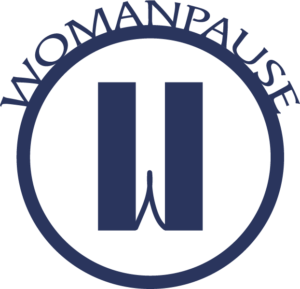
Diane and Alyson! I am so moved by this interview and can’t wait to get started! Thank you both for your good work ❤️
Thank you, Sally!! You will love listening to the “Where I’m From” poems and the author discussions with Alyson! And her essays!! Oh … you will love!
Thank you so much, Sally!
What a journey, done with courage and hard work
1
Thanks, as always, dear Greta!!
Thank you so much, Greta.
Such a powerful collection of stories, Diane! Thank you for bringing them into my day. It is lovely to see the good work you continue in the world. Miss you! xo Kathie
Miss you too, Kathie! “Where I’m From” is incredibly powerful and so wonderful that Alyson is helping get these stories out into the world!
Thank you so much, Kathie!
So powerful I had to stop and go back several times ….I thank yo so much and Alyson so much for the powerful information and stories!❤️
Thank you, dear Joann! Alyson is amazing!!!
Thank you, Joann!!!